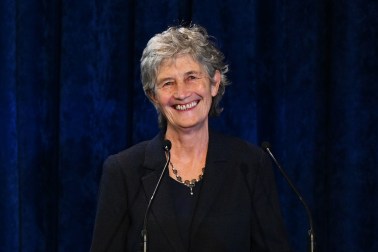So, Just Stop Oil is now His Majesty’s Official Opposition. Keir Starmer has adopted the group’s main demand – no development of new oil and gas reserves – as his own. Presumably he hopes to attract green votes, especially in Scotland where the SNP has a similar policy. But it means going into the next election with a policy which is both economically and environmentally illiterate.
Even with a drive towards clean energy – and even if tricky targets to outlaw new gas boilers and petrol and diesel cars could be met – Britain is going to remain dependent on oil and gas for decades to come. In spite of a boom in the construction of wind and solar farms, solar and wind currently accounts for little over 4 per cent of our total energy needs.
Labour is going into the next election with a policy which is both economically and environmentally illiterate
The rapid construction of wind and solar farms is embedding dependence on gas for electricity generation because it is needed to balance the supply from intermittent renewables. A fairly steady 15 per cent of our electricity at present is provided by nuclear; most of the rest comes from inverse proportions of wind, solar and gas. When wind and solar is weak, we turn up the gas; when it is strong, we turn down the gas. We have minimal energy storage, and nor is there the prospect of much in the pipeline, and not without reason: it is extremely expensive. Nor can we use nuclear to balance wind and solar: it is a lot less flexible than gas.
Energy aside, we will still need oil for all manner of other products, such as plastics (the shortage of PPE during pandemic reminded us just how much we rely on it, even if we tackle excessive use of shopping bags and the like), fertilizers, bitumen and many other things.
The choice, then, lies between UK-produced oil and gas and imported oil and gas. If you thought that the Ukraine invasion had given us a lesson on energy security, it is a lesson which Starmer and the Labour party seem intent on unlearning. There will be a serious impact, too, on Britain’s trade balance if we pass up the opportunity to exploit our oil and gas reserves and choose to import it instead.
Nor will a ban on new oil and gas development help to reduce carbon emissions. On the contrary, it will increase them. If you want to reduce emissions you should favour the most local source of oil and gas available. Transporting the fuels by long pipelines consumes large amounts of energy. Even costlier, from an energy point of view, is transporting gas in the form of liquified natural gas (LNG) – a form on which we have come to depend since the loss of Russian gas. Last year, 45 per cent of UK gas imports came to Britain in this way. The process of liquifying the gas at one end, transporting and then re-gasifying it at the other consumes around 10 percent of the energy contained within the gas, as well as increasing the risk of methane leaks.
That, then, is Starmer’s energy policy: one which will make Britain poorer and which will increase global carbon emissions. If he is counting on a large number of voters not realising this, he may end up disappointed.
Ross Clark is the author of Not Zero: How an Irrational Target Will Impoverish You, Help China (and Won't Even Save the Planet).







Comments